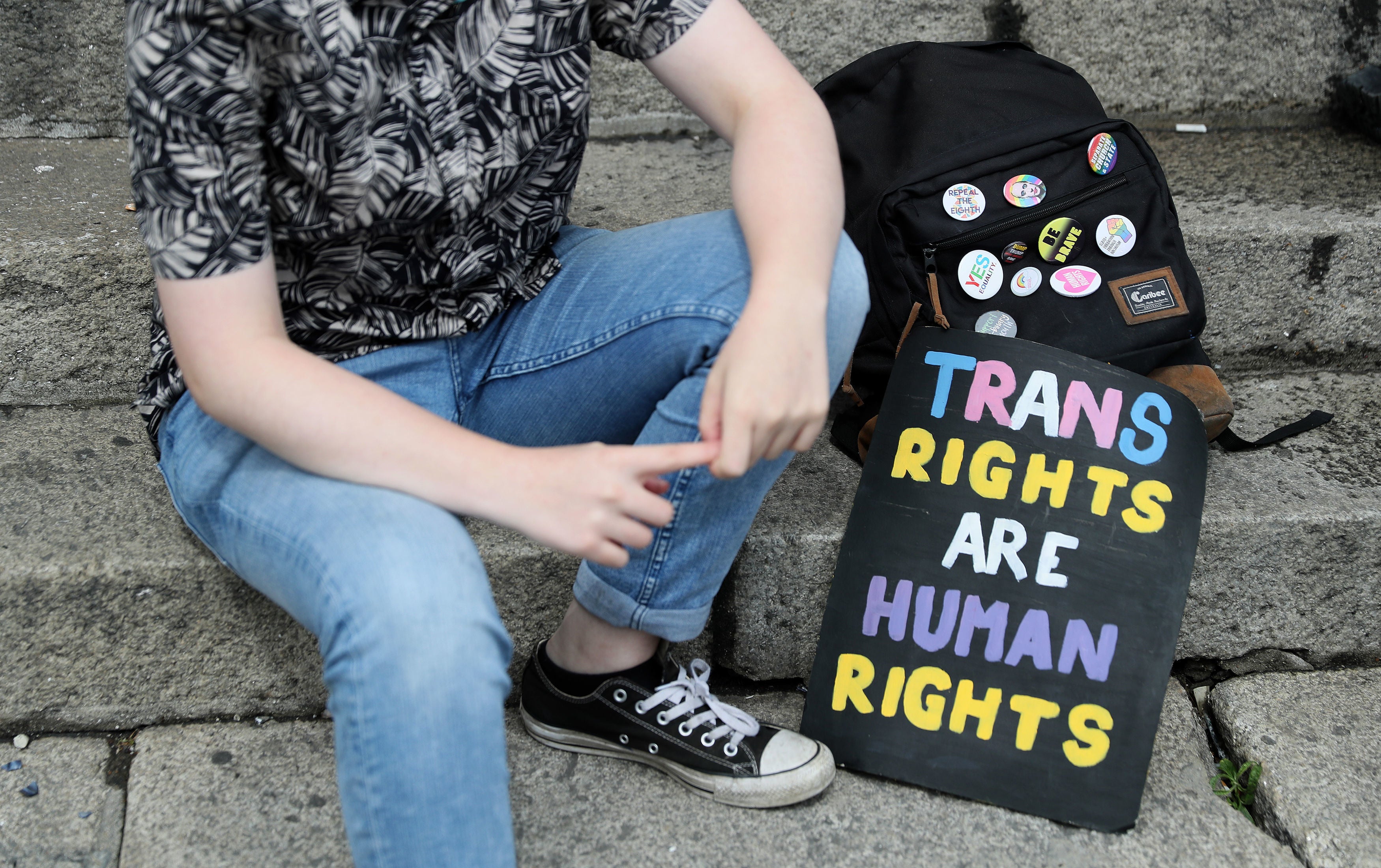Petition forces Commons debate on trans rights to self-identification
UK risks being seen as ‘outdated laggard’ on issue, says chair of parliamentary LGBT+ group

Your support helps us to tell the story
From reproductive rights to climate change to Big Tech, The Independent is on the ground when the story is developing. Whether it's investigating the financials of Elon Musk's pro-Trump PAC or producing our latest documentary, 'The A Word', which shines a light on the American women fighting for reproductive rights, we know how important it is to parse out the facts from the messaging.
At such a critical moment in US history, we need reporters on the ground. Your donation allows us to keep sending journalists to speak to both sides of the story.
The Independent is trusted by Americans across the entire political spectrum. And unlike many other quality news outlets, we choose not to lock Americans out of our reporting and analysis with paywalls. We believe quality journalism should be available to everyone, paid for by those who can afford it.
Your support makes all the difference.Demands for trans people to be allowed to self-identify their gender are to be debated in parliament next week in response to a petition which gathered almost 140,000 signatures.
The chair of parliament’s all-party group on global LGBT+ rights told The Independent that it was “no surprise” that the issue was being forced back onto the agenda despite the government’s bid to shut down the issue.
Tory MP Crispin Blunt said the UK risked being seen as “outdated and international laggards” on trans rights by sticking with “invasive and bureaucratic rules”.
Reforms to the Gender Recognition Act to permit self-identification without medical diagnosis were ditched by the government in 2020 following a consultation which sparked bitter controversy.
Campaigners for women’s rights said the change would make it impossible to protect single-sex spaces like changing rooms and toilets from people who were born male and have male genitals.
The then equalities minister Liz Truss said at the time that existing legislation struck the right balance.
She dropped plans drawn up under Theresa May’s administration for self-identification by signing a statutory declaration without the need for a diagnosis of gender dysphoria.
Instead, she promised to open new gender clinics and cut the cost of gender recognition certificates in England and Wales as part of a drive to make the process “kinder and more straightforward”.
But now the issue has been forced back onto the parliamentary stage by a petition signed by 137,271 people, calling for the Act to be reformed “to allow transgender people to self-identify without the need for a medical diagnosis, to streamline the administrative process, and to allow non-binary identities to be legally recognised”.
The Commons Petitions Committee has tabled a debate on the petition for next Monday. The Westminster Hall debate cannot lead to a change in the law, but offers a new chance for supporters of reform to make their case.
The authors of the petition said policy-makers had “ignored” the 70 per cent support for the change recorded in the earlier consultation.
And they said that the current process is “distressing and often humiliating for transgender people, as well as lengthy and costly making it inaccessible to many people”.
In response, the government equalities office said: “We want transgender people to be free to live and to prosper in modern Britain. We have looked carefully at the issues raised in the consultation, including potential changes to the Gender Recognition Act 2004.
“It is the government’s view that the balance struck in this legislation is correct, in that there are proper checks and balances in the system and also support for people who want to change their legal sex.
“It is also important that we protect single-sex spaces in line with the Equality Act. The law is clear that service providers are able to restrict access to single sex spaces on the basis of biological sex.”
Mr Blunt said: “Over 100,000 people responded to consultation on GRA reform back in 2018 so it’s entirely unsurprising to see this public support for a petition once the government set its face against GRA reform in 2020.
“This issue will not go away. As understanding of gender identity improves, UK processes to legally support trans people exercise their rights to the freedom to live their lives as they wish now look increasingly invasive and bureaucratic.
“We are becoming outdated and international laggards rather than leaders in this area of human rights law, important to up to one per cent of our population.”
But a spokesperson for the Woman’s Place UK pressure group said: "We believe that it should not be easy for people to legally change their sex, and that some gatekeeping is required.
“Far from being a minor administrative matter, allowing men to legally become women simply by filling in a form would deprive women of the right to the privacy, dignity and safety of single-sex spaces and services."
Join our commenting forum
Join thought-provoking conversations, follow other Independent readers and see their replies
0Comments